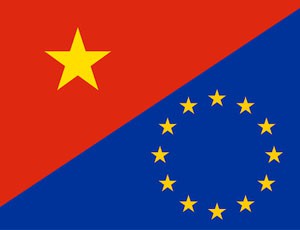In this Southeast Asian country where millions still live on $2 a day farming rice or fitting buttons onto shirts, Silicon Valley chip maker Intel raised eyebrows a decade ago when it launched a semiconductor factory here — the single largest American investment in the country ever.
Now, the Santa Clara company's $1.04-billion assembly, testing and manufacturing plantis "moving up the product stack," executives say. It is adding more complex products to the mix, such as central processing units and systems on a chip, and sending some of its 1,100 Vietnam employees as far as Oregon for training.
"Vietnam has positioned technology at the center of its growth and development goals," said Sherry Boger, general manager with Intel Vietnam. "We see our facility and the broader technology ecosystem in Vietnam steadily rising up the value chain."
Vietnam is one of the 12 countries participating in the Trans-Pacific Partnership, a landmark 12-nation free-trade deal whose negotiations concluded this week. The accord will let Vietnam ship many products tariff-free to countries that constitute two-fifths of the world's trade.
Initially, the biggest boost will be for Vietnam's apparel and footwear exports. But the U.S.-led trade pact should also help Vietnam attract more high-tech investments like Intel's and push the country up the value chain. Neither China nor Vietnam's main rivals in Southeast Asia have joined the accord; the Peterson Institute of International Economics forecasts that of all the TPP participants, Vietnam stands to gain the most.
The trade deal is just part of Vietnam's strategy as it aims to move up the value chain after three decades as a hub for low-cost manufacturing. The country is also easing investment and tax rules, improving infrastructure and pursuing other trade deals as it seeks to position itself ahead of nearby competitors such as Cambodia and Myanmar.
Vietnam opened to investors in 1987, and within a few years became an alternative to China for companies looking to outsource basic factory work. China's slowing economic growth since 2011 and its strategic shift away from low-value export manufacturing have been raising Vietnam's competitive edge for making auto parts, furniture and garments.
Labor costs 20% less in Vietnam than in China, Ho Chi Minh City business advisory firm Infocus Consultants estimates. An 800-mile land border with China makes it relatively inexpensive to import Chinese raw materials and supplies for factory work. Value-added manufacturing made up 17% of Vietnam's economy last year.
Investment bank Goldman Sachs predicts that Vietnam's economy, now the 55th largest in the world, will surge to No. 17 by 2025, with a gross domestic product of $450 billion, up from $186 billion currently.
The nation's economy grew 6% last year and is forecast to expand at about the same rate this year. Since Vietnam opened its economy to foreign investment, its growth rate has ranged between 5% and 10% annually.
"Vietnam is among the more competitive destinations for foreign direct investment in the region," said Sandeep Mahajan, the World Bank's lead Vietnam economist. "So the question is how do they leverage that to the maximum extent?"
In addition to participating in the trade pact, Vietnam expects to sign a separate free-trade agreement by 2018 with the European Union, a pact that would drop tariffs on many goods to the country's major export market. And to entice even more overseas investment, Vietnamese officials are finalizing rules to let foreign investors fully own locally listed companies.
Overseas fund managers appear eager; already, half the top 50 Vietnamese companies by market capitalization have reached the old 49% foreign ownership limit. Many foreign investors started taking an interest in 2013, when the Ho Chi Minh City stock exchange rose by 20% over the course of the year.
"I've talked with a lot of people, and they are optimistic," because as soon as foreign investors can buy majority shares, stock goes up and then you can make money on that, so they're quite excited, said Pham Luu Hung, associate investment advisory director with SSI Research in Hanoi. Hung's parent company, Saigon Securities, has declared itself formally open to majority foreign investment.
Foreign direct investment — led by Japan, Taiwan and South Korea — accounts for almost a fifth of the Vietnamese GDP.
Taiwanese high-tech fabric maker Singtex is among those putting money into Vietnam. Last November, the company opened a factory near Ho Chi Minh City employing more than 400 workers.
Singtex President Jason Chen said low labor costs factored into the decision, as did the expectation that TPP would offer his company's products a leg up. Singtex makes high-performance fabrics used by companies including Nike and Timberland.
"TPP is just one reason to go to Vietnam," Chen said at his company's headquarters in New Taipei City recently. "We have very good relationships with the Vietnamese; for the last nine years they have been working in our company here, so they are trained and know the corporate culture. They can return home and manage things and we don't have to worry too much."
To help keep Vietnamese exports competitive, Vietnam has let its currency, the dong, weaken three times since January (1% each time), with the latest move in August after China's move to devalue its renminbi by 3.5%. A weaker currency makes exported goods cheaper overseas.
But production of some basic goods, particularly garments, is already moving from Vietnam to Cambodia, Laos and Myanmar, where labor is even cheaper. So Vietnam is trying to stay ahead of its neighbors and attract more high-tech production by upgrading its transport infrastructure with Japanese development aid.
The assistance has helped fund Vietnam's first metro line, due to open next year in Ho Chi Minh City, the country's financial hub. Congestion at the Hanoi airport, a major international gateway, eased this year with the opening of a Japanese-bankrolled $210-million terminal.
In high tech, Samsung Display broke ground last year on a $1-billion screen production plant, after opening a $2.5-billion smartphone assembly center in Bac Ninh province near Hanoi. Taiwan's Foxconn Technology Group — a key Apple contractor — makes cameras, computers and other electronic devices in the same province.
A lack of skilled workers is Vietnam's chief shortfall. Vietnam has 90 million people but only 3% are graduates of its 400 colleges and universities. Many of those institutions lack teachers for the subjects that foreign investors want employees to learn, human resource consulting firm ManpowerGroup said in a research report. Universities may feel stuck for lack of autonomy to decide fees and curricula.
Read More
Intel helped start a program to improve university-level engineering programs at Vietnamese institutions. And the company has sent 73 of its Vietnamese workers to study for two years at Portland State University in Oregon.
"We understood from the outset that there would be a need for capacity-building in skills development," said Boger, the Intel executive. "Our Vietnam graduate and post-graduate entrants are progressing well.… We are at an early stage in our investment."
latimes.com

























.jpg)
.jpg)
.jpg)
.jpg)
.jpg)
.jpg)
.jpg)
.jpg)
.jpg)
